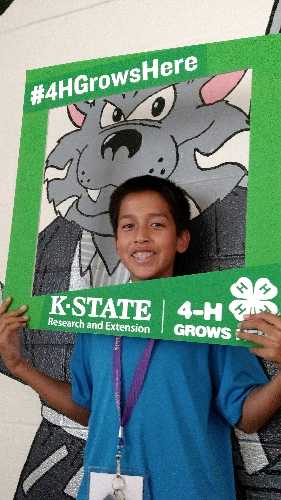March 15, 2022
Tools to Equip: 4-H Program Development - Getting the Facts Straight

Do you recall the famous nursery rhyme, Humpty Dumpty? You probably remember - the wall, the fall, the response. So for a moment, pause and answer this question. Describe Humpty Dumpty.
"Is Humpty Dumpty an egg?"
My first reaction was "Yes."
But I soon discover upon further investigation that no where in the original and even contemporary understanding of the famous english nursery rhyme is Humpty Dumpty described as an egg.
So the answer is really, "No."
The only reference describing Humpty as an egg comes from Lewis Carrroll's 1871 book Through the Looking-Glass. Yet countless illustrations in children's books for years and years afterwards reinforce that "egg" picture in a reader's mind. Why is that?
Maybe it is easier to think of an egg falling off a wall and cracking as a safer and less violent metaphor for helping children think about safety and risk taking. Regardless, this message is powerful, passed on, and pervasive, but does not stand up when actually examined textually.
For 4-H Youth Development programs and practice to continue to THRIVE, they need to be examined regularly not just for popular acceptance, but how they stack up compared to best practices and the standards of Youth Development profession.
Like any extension program, we examine our practice under the guidance of the latest research to help our program continue to represent what the science says regarding helping youth thrive in families and communities.
I was asked this week why are we emphasizing program development this year in our professional development. So I wanted to share a few reasons why I find program development foundational to understanding the mission of 4-H Youth Development in Kansas.
1) 4-H Youth Development is about growing competencies and character in youth not just about a calendar of activities.
2) Learning how to develop programs with youth development learning objectives strengthens our work and communicates our programmatic impact to the public.
3) With the amount of new professionals in KSRE, leadership of the KS 4-H Agent Advisory, Mentor agents, Specialists, PFT and KAE4HA leadership endorsed this move to ground our professionals in program fundamentals.
4) Building on the success of past professional development trainings on Evaluation with Sam Grant from Minnesota 4-H a couple years ago, we will continue to use expertise from Minnesota 4-H, who have an abundance of resources refined and developed that are ready to use across Cooperative Extension.
5) This fall, I will be inviting Jessica Russo (one of our trainers in April) from Minnesota 4-H back to lead us in a better understanding and training around the First Generation Lens for engagement with diverse audiences. We will continue to layer competencies upon competencies to equip KSRE professional with the tools they need to be successful.
6) As we complete this cycle and receive relevant feedback from participants, I will then communicate this program quality strategy/design to local extension boards so they better understand the why behind this competency building approach for KSRE professionals and how it will better their local 4-H program. Evaluation, program development, and intentiation involvement with new audiences are key components to any successful program.
I hope that you can join us for this 4-H program development opportunity on April 19-21 in Atchison, KS (Sponsored in partnership with Youth Development PFT, State 4-H Office and KAE4-HA). See previous announcement here: https://ksre.ksu.edu/tuesday/announcement/?id=81081 (based on the subject matter combined in the following from MN4H - https://extension.umn.edu/building-high-quality-youth-programs/program-design-and-evaluation).
For those that want more:
The Weikart Center has been an Youth Development research and best practices leader for generations. https://forumfyi.org/weikartcenter/ypqi-process/ in particular their Assessment tools are great: https://forumfyi.org/weikartcenter/assessments/.
Kansas Afterschool Program Quality Guidelines offer great tools for program development and ongoing assessment for program improvement in out of school settings. https://kansasenrichment.net/guidelineresources/
I also highly recommend these additional self-paced professional development options available from Minnesota 4-H to keep growing your professional competencies as a KSRE agent involved with 4-H Youth Development:
Youth Work Matters - https://extension.umn.edu/youth-work-courses/youth-work-matters-self-guided-online-course
Social and emotional learning + wellbeing -https://extension.umn.edu/youth-learning-and-skills/social-and-emotional-learning-wellbeing-self-guided-online-course
Youth Engagement Matters - https://extension.umn.edu/youth-leadership-and-voice/youth-engagement-matters-self-guided-online-course
Dilemmas in Youth Work - https://extension.umn.edu/youth-program-management/dilemmas-youth-work-self-guided-online-course
Let's continue to make the best better in 4-H Youth Development. Continuing to build upon the foundation that has been laid, to empower youth to reach their full potential. #GrowingTomorrowsLeaders #KSRE